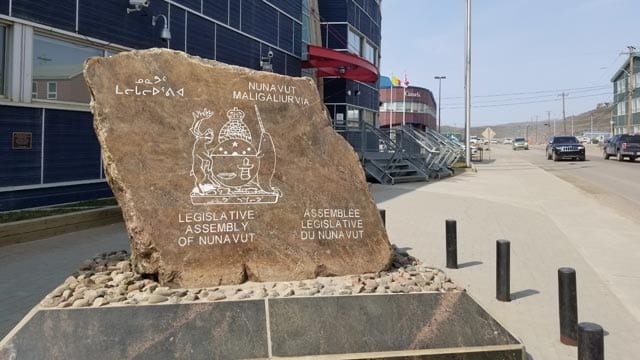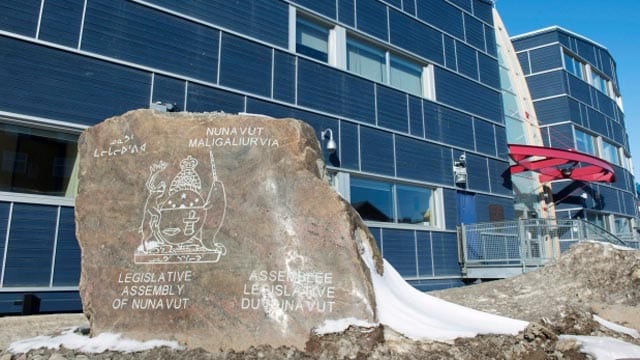
The president of Nunavut Tungavik Inc. (NTI) says that a recently uncovered cabinet document from the Brian Mulroney administration shows that the federal government sought to block Inuktitut from being the working language of Nunavut even as the deal for the new territory was being cut.
NTI obtained the documents through an access to information request.
They show the minutes of a cabinet meeting March 13, 1990 where the minister of Indian Affairs and Northern Development (now Crown-Indigenous Relations and Indigenous Services) received guidelines for negotiating the birth of Nunavut.
The minutes state the eventual agreement must not, “provide general linguistic guarantees for the use of Inuktitut in government and the legal and educational system in the claims area.”
According to NTI President Aluki Kotierk, that decision is still hurting Nunavut today.
“We would not be in the position we are in today [if federal language recognition had been included], where one per cent of Inuktut is lost a year. Although we’re the public majority of the territory of Nunavut, 85 per cent of the population in Nunavut is Inuit. 75 per cent speak Inuktitut as their mother tongue,” said Kotierk.
“If the rate of decline continues, by 2051, only 4 percent of us will be speaking Inuktitut.”
For her, the use of Inuit language and the wellbeing of Inuit are tied.
“Inuit are not living in dignity in their own homelands, as Inuit who speak only Inuktut are not able to access essential public services, whether it be from the territorial public government or from private organizations, because Inuktut is not the working language of our territory,” said Kotierk.
What Nunavut did receive for language came in through a side door, the existing relationship with the Northwest Territories.
The NWT declared Inuktitut an official language in 1984 and Nunavut started with that already in law.
The Agreement in Principle also guaranteed the creation of the Nunavut government, which could pass laws to promote Inuktitut.
So Inuktitut could be legally protected at a territorial level.
What the feds wouldn’t give up is recognition in the Constitution.
Kotierk said the difference is huge.
Inuktitut didn’t receive the same treatment as English and French.
“The key paragraph for us is paragraph 18, where it talks about the final agreement. It says the final agreement will not provide a general linguistic guarantee for the use of Inuktut in the government. This is something we’ve been advocating for heavily, the use of Inuktut in the education, justice and health system.
“It’s really interesting, because this paragraph specifically points out that the education system, as well as the legal system as areas where Inuktut will not be provided that linguistic guarantee,” explained Kotierk.
The Government of Nunavut and NTI have been at odds over Bill 25, an education bill that delays the implementation of mandatory Kindergarten to Grade 12 Inuktitut for 20 more years.
If Inuktut was enshrined in the Canadian constitution, the Government of Nunavut would not be able to delay this process, the fight wouldn’t be happening.
A nearly 30 year-old cabinet mandate may not be very relevant to Inuit today, but the NTI president thinks sharing the history of the decision still has value.
“Particular folks in society, really have an expectation that government is looking out for the best interest of the public. When we see documents like this, where government is yet again trying to insure that the rights are smaller, then what we could expect for other Canadians, then we wonder if they’re truly looking out for our interests,” explains Kotierk.
As with almost all discussions of official languages in Canada, the phrase “distinct society” comes up. Kotierk thinks Nunavut deserves what Quebec receives, recognition that Nunavut is distinct and Inuktut is the official language.
“I think when Canada was creating the nation, and they looked at Quebec, and talked about it as a distinct society, with a distinct culture, I think the same sorts of things need to be looked at in terms of Nunavut. Nunavut is a distinct society, and it’s us Inuit that make up Nunavut, and speak a different language. That language needs to be supported,” explained Kotierk.
APTN News reached out to former prime minister Brian Mulroney but had not heard back by the time this story was posted.











